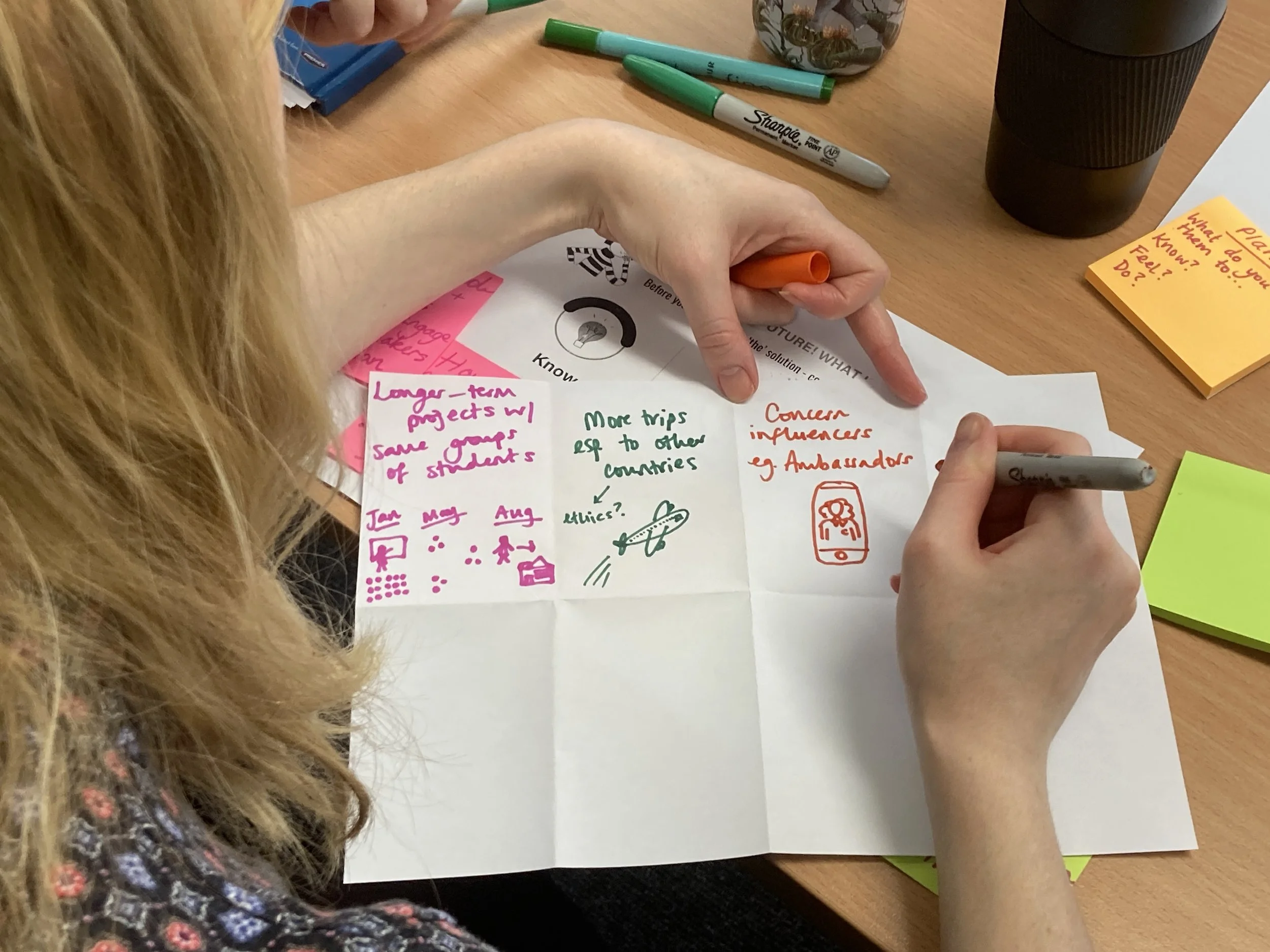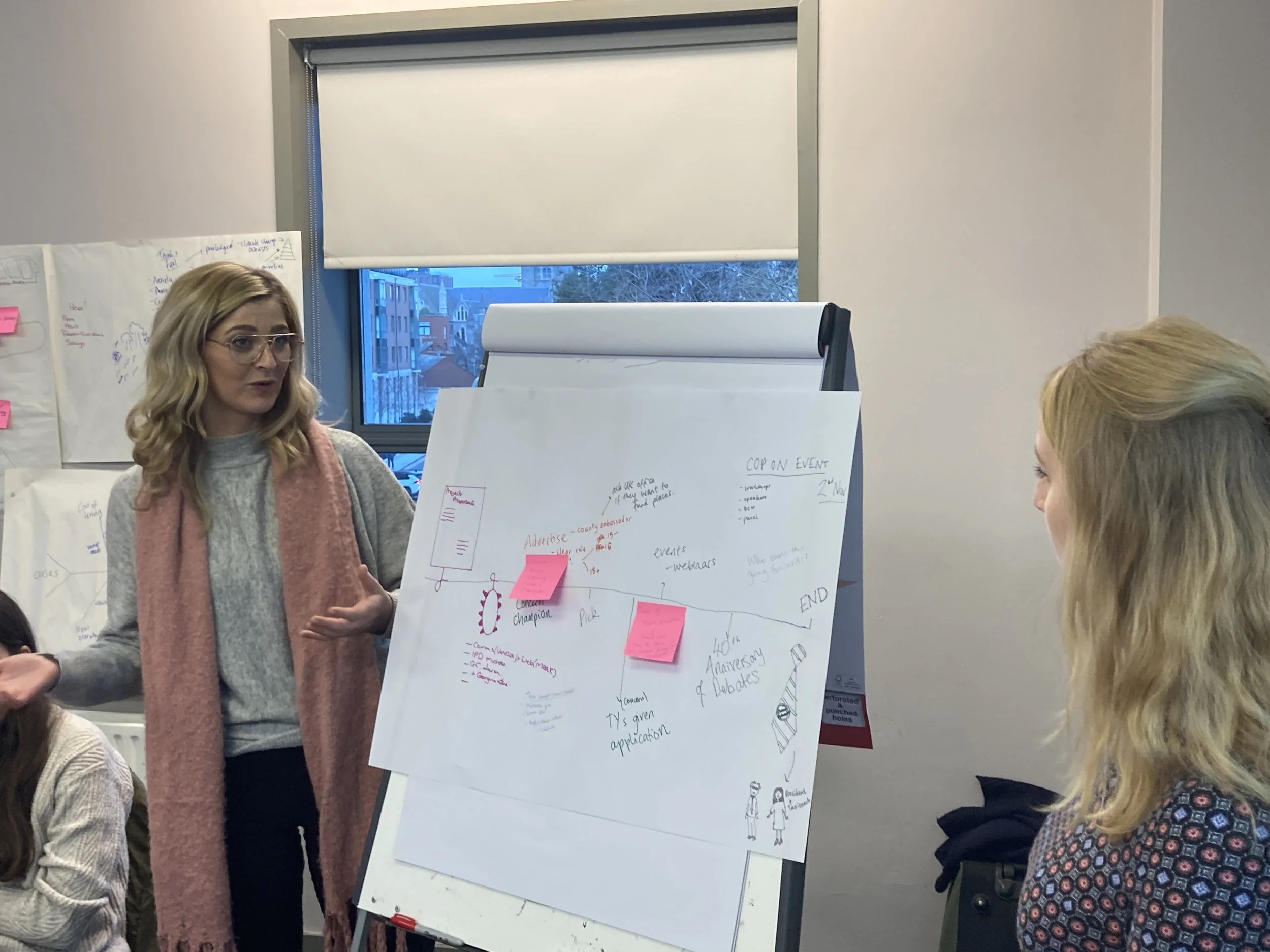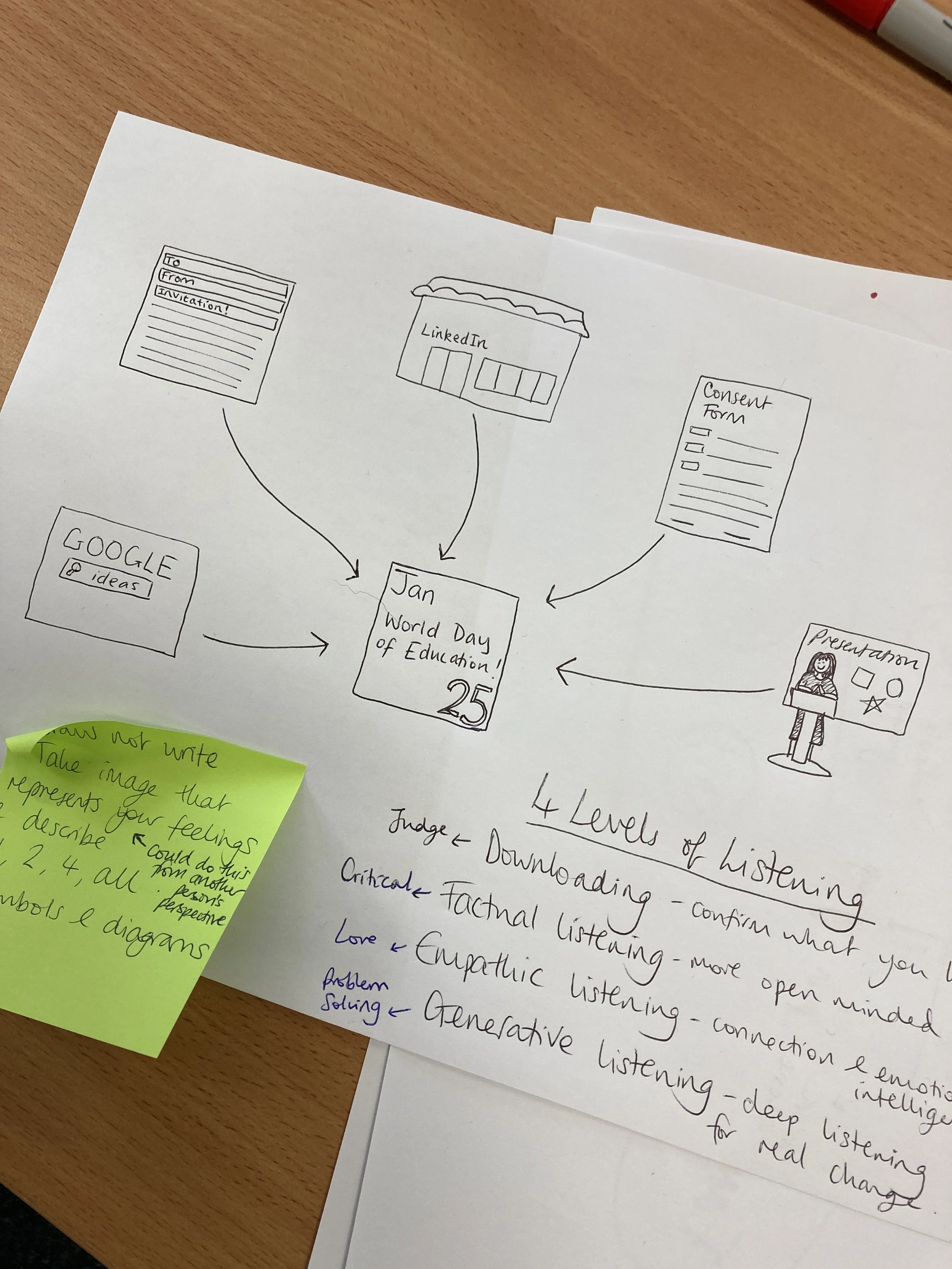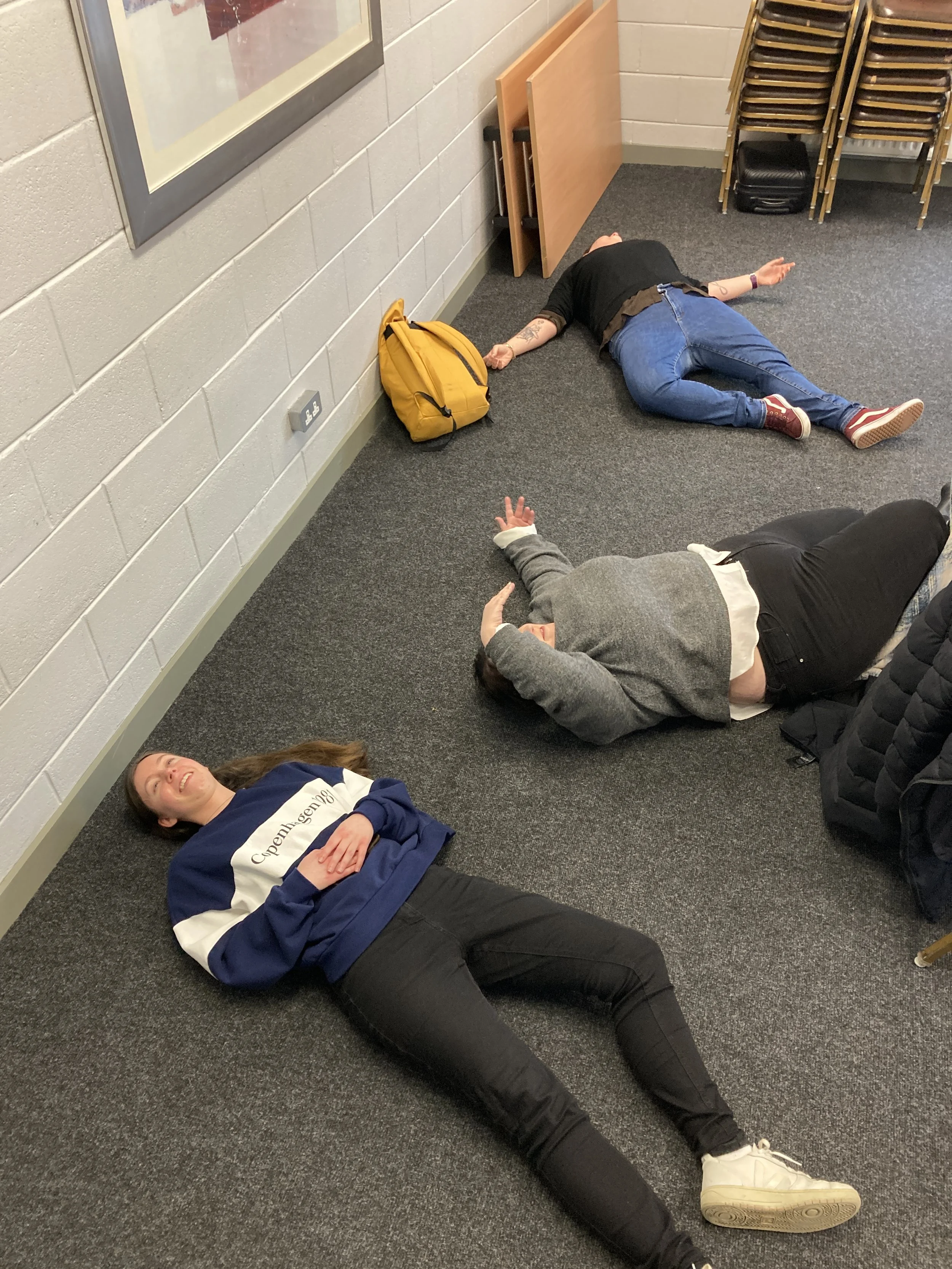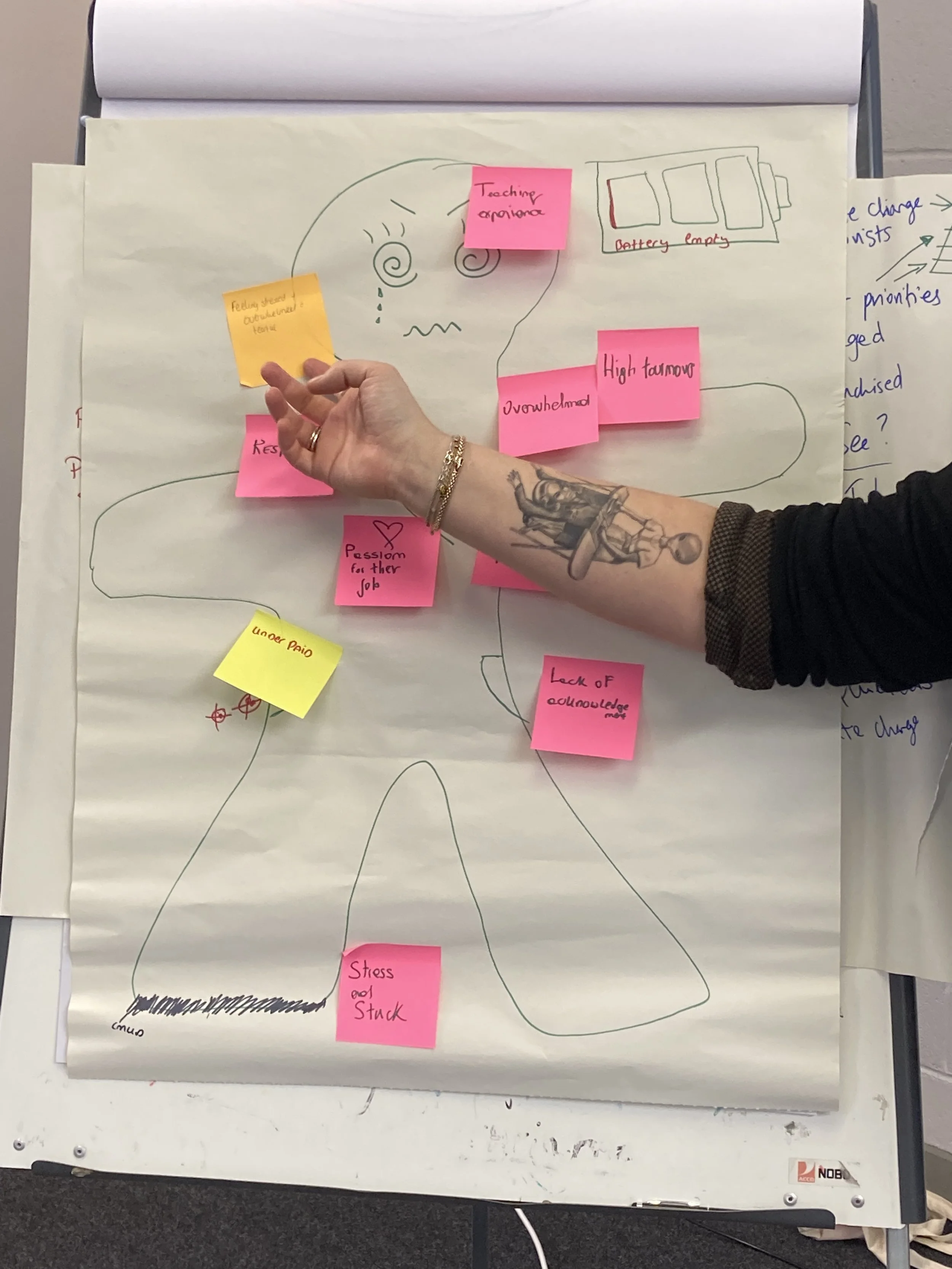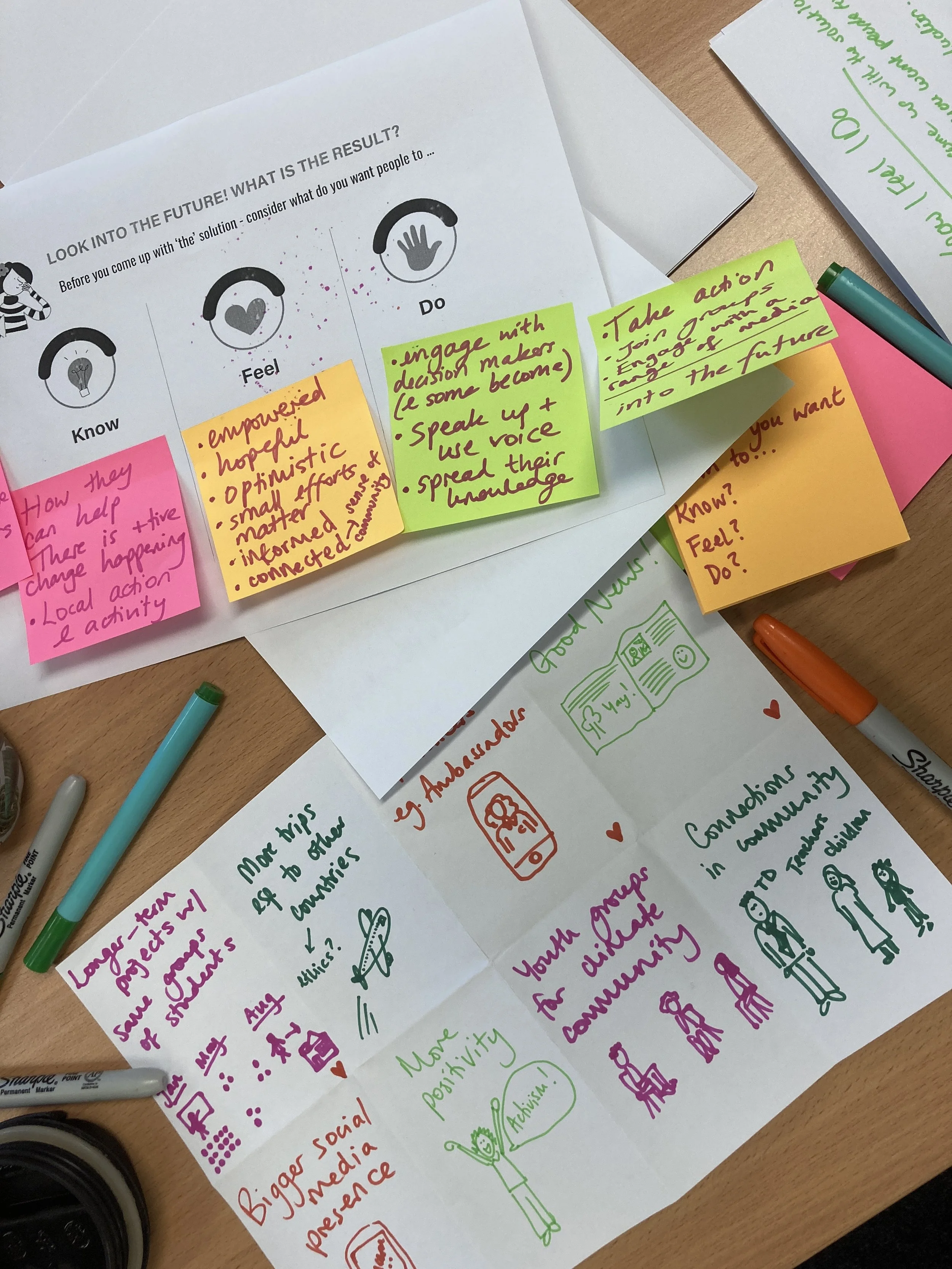Design Thinking training with Concern
Concern - an international humanitarian organisation - invited me to deliver a two day design thinking training for their campaigning and schools teams in January 2024. The participants, who work across the charity, were interested in broadening their design thinking skills to support their workshops and global cafes on conflict, climate change, and the Sustainable Development Goals, with the aim of creating even more innovative and user-focused solutions.
I designed a bespoke two day training which included:
A range of Visual Thinking games and tools
Exercises to expand our listening skills including the four levels of listening and wise crowds
Mapping our challenges using image cards and the cause and effect model
Stakeholder and Empathy Mapping
Introduction to a classic design sprint
Ideation (using the crazy 8 model)
Diverge, decide and envisage - using OpenSpace
Storyboarding, Prototyping, Testing and refining exercises
Embedding the practice using Stop, Start, Continue
Feedback from the group:
What did it make you think?
Well worth taking time out to look at new ideas it was inspirational to hear other ideas and thoughts too
To value more visual representations
New workshop techniques and ways to encourage conversation in group settings
New ways of listening
I learnt a lot about how others work and think and more self awareness of how I approach problems.
How to take an idea and develop a plan of action to implement it and bring it to life.
I learnt about (design Thinking) and new ways of approaching problems especially as a team.
I learnt about the four types of listening.
I understand the different methods and practices to run (design Thinking) workshops warmup exercises how to engage with different styles of learners i.e. different languages disabilities social cues people on the spectrum.
What did it make you feel?
Hopeful. Inspired! Like my ideas are useful a bit annoyed Not all pour ideas are doable.
I thought Becky created a very safe and encouraging learning space.
More connected to the team
Engaged
Great collaboration desire in the wider organisation.
I feel inspired and excited for 2024
Greater understanding and comradary with colleagues I wouldn’t usually work
What are the key things you’re taking away?
Our team could do these methods for planning will use methods in my workshops also.
Well input methods into my workshops, and Take time to plan better before starting a projects.
This was a good opportunity to meet with newer colleagues
I found the tools for thinking through problems and processes and solutions very useful thank you.
New tools for facilitation.
Practical ideas for workshops and collaborative approaches.
Collaborating with people from different teams even if unrelated creates great ideas and insights.
How to assemble a presentation and new ideas.
Why use Creative and Design Thinking for Service Design?
Design and creative thinking methodologies can offer numerous advantages to charities and organisations like Concern, including:
Problem Solving: Design thinking and creative methodologies encourage innovative problem-solving approaches. They help individuals and teams tackle complex issues by considering multiple perspectives, generating unique solutions, and iterating on ideas.
Innovation: These methodologies foster a culture of innovation. By emphasising creativity and user-centric design, they can lead to the development of better products, services, and processes.
User-Centricity: Design thinking places a strong focus on understanding and empathising with our audiences. This results in solutions that better meet the needs and preferences of the people that we are working with.
Collaboration: Creative thinking methodologies often involve interdisciplinary collaboration. This can help organisations like yours leverage diverse skills and perspectives to develop more holistic and effective solutions.
Risk Mitigation: By encouraging prototyping and testing early in the design process, these methodologies can help identify and address potential issues before they become costly problems, reducing project risks.
Adaptability: In a rapidly changing world, design and creative thinking methodologies promote adaptability. They teach individuals and organisations to pivot and adjust their strategies as the world changes and new information becomes available.
Stakeholder Engagement: Stakeholders engaged in creative processes often feel more connected to a given cause and experience personal growth, leading to improved morale and involvement.
Learning and Skill Development: Teaching and applying these methodologies can help individuals and teams develop valuable skills in problem solving, empathy, critical thinking, and communication.
Continuous Improvement: These methodologies often involve iterative processes, encouraging ongoing improvement and refinement of ideas and solutions.
